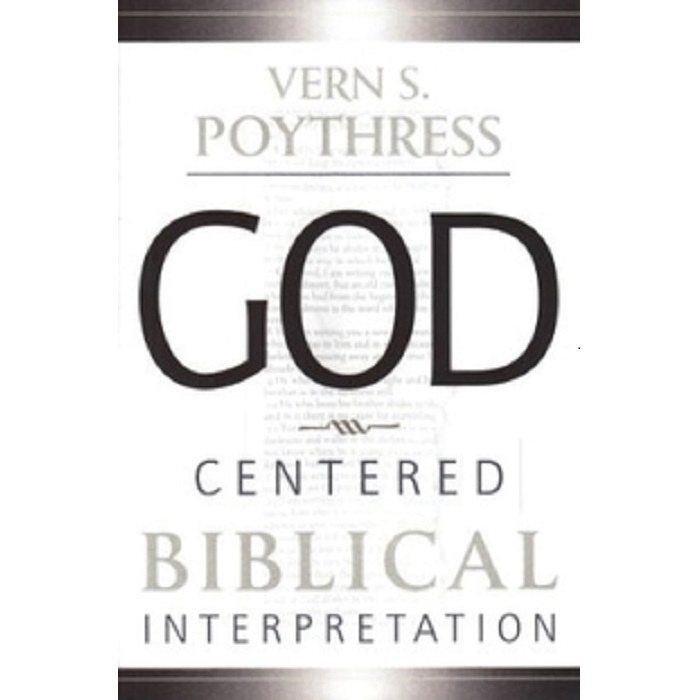Description
Theologically and pastorally profound, this study of biblical hermeneutics builds on Trinitarian presuppositions, while exposing the idols that lead interpretation astray. Poythress emphasizes the interpreter's spiritual qualifications along with linguistic principles.
Table of Contents
1. The Challenge of Understanding the Bible
Christians Reading the Bible
Strengthening the Foundations
2. God and Biblical Interpretation
The Trinity and the Word of God
The Word of God
Communication Within the Trinity
Infinite Meaning
3. What Is the Bible?
The Word of God
The Bible as Covenantal
God’s Speaking in Other Ways
The Divinity of the Word of God
Coinherence: God’s Dwelling in His Word
Imaging
The Ontological and the Economic Trinity
Awe in the Study of the Bible
4. The Purpose of the Bible
Many Purposes
Triune Purpose
Christ as the Center of Scripture
5. The Triune Character of Truth
Language as Imaging God
Truth
Secular Theories of Truth
Truth as Analogical
6. Meaning
Unity and Diversity in Content
A Triad for Meaning
Depth in Import
Meaning and Application
The Divine and the Human in the Bible
Diversity in the Mode of Divine Authorship
The Concerns of Scholars
Illustrations Using Analogy
Creativity
Diversity in the Body of Christ
The Positive Role of Scholarship
7. Terms
Terms and Naming
Word and Thought
8. Communication
God Speaking
Author, Discourse, and Reader
Misinterpretations as an Aspect of Divine War
9. Steps in Interpretation
God’s Presence Today
God’s Truthfulness
God’s Control
Smaller Acts of Communication
Explicit Hermeneutical Procedure
Further Subdivisions
God’s Work in the Whole Process
Steps in Interpretation
10. Alternative Hermeneutical Perspectives
An Alternative Perspective: God Speaking to His People
Once for All
An Alternative Perspective: God Speaking Now
The Nature of Alternative Models of Interpretation
Explicitness in Hermeneutics
11. Exemplars and Analogy
The Role of Exemplars
Using Analogy
A Triad of Attributes
12. History
Unity and Diversity in History
Perspectives on History
An Example in 2 Kings 14:5
Other Kinds of Connections
Classifying Connections
The Sin Offering in Leviticus 9:8–11
Central Connections and More Distant Connections
Analogies Between Historical Events
An Example of Warfare: 1 Samuel 13:5
An Example of Praise: Ezra 3:11
The Clustering of Divine Action
Grammatical-Historical Interpretation
13 Idols as Counterfeits
The Combatants
The Root Issue: Idolatry
Subtle Idolatry
Deceit and Blindness
14 The Global Distortion of Interpretation
Perspectives on Communication
Knowing God, the Author of the Bible
Knowing God in His Connection with the Central
Subject Matter of the Bible
Knowing God in Order to Know the Addressees
Knowing God in Interpreting Jesus’ Parables
Knowledge Even of “Basic” Meaning Is Affected
The Quest for Scientific, Neutral Objectivity
in Interpretation
Liberationist Interpretation
Reader-Response Interpretation
Orthodox Reactions
The Pervasiveness of Spiritual War
15. Distortions in Terms
The Destruction of Would-be Autonomous Categories
Applying the Expressive, Informational, and Productive Perspectives
16. Reforming the Ogden-Richards Triangle for Meaning
The Ogden-Richards Triangle
The Roots of Linguistic Distinctions
17. Differences in the Doctrine of God Among Christians
Tacit and Explicit Knowledge of God
An Example with Regard to Divine Sovereignty
Conclusions About Differences in Biblical Interpretation
18. The Redemption of Interpretation
Rejecting Worldly Irrationalism
Rejecting Worldly Rationalism
Redemption
Bibliography
Index of Scripture
Product Details
Title: God-Centered Biblical Interpretation
Author: Vern S. Poythress
Format: Paperback
Pages: 248
ISBN: 9780875523767
Publisher: P&R Publishing

